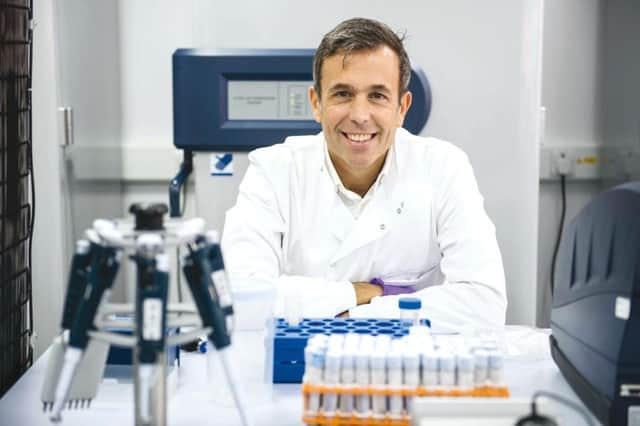Brighton doping test could be used at Tokyo Olympics


International Olympic Committee (IOC) president Thomas Bach has announced a test developed by the university’s professor of sport and exercise science, Yannis Pitsiladis, could be added to their testing programme.
The test takes a different approach to detecting traces of illegal drugs.
Advertisement
Hide AdAdvertisement
Hide AdRather than testing urine and blood samples, the professor has researched ribonucleic acid, or RNA, which is essential for life alongside DNA and proteins.
The findings of the research showed that drugs can leave a tell-tale signature in RNA.
Professor Pitsiladis said the test can identify traces of banned substances ‘many weeks after’ they entered the body ‘with near perfect sensitivity’.
“Our research focuses on the fingerprint banned substances leave behind allowing a greater window of opportunity to catch the cheaters long after the drug has left the system – this is the beauty of this approach,” he said.
Advertisement
Hide AdAdvertisement
Hide AdSpeaking on the IOC president’s announcement, he said: “I have been dreaming of this moment for so long and mostly believing this would not happen in my lifetime. The timing of this development has the potential to be the giant leap for clean sport we have all been dreaming of.”
“Those who are doping or supporting cheating should take note and I suspect there will be plenty of disturbed sleep.”
More than £540,000 was awarded to fund the research by the IOC and World Anti-Doping Agency (WADA) after a visit to the university’s Anti-Doping Research laboratory, Eastbourne
As a member of the IOC’s Medical and Scientific Commission, Professor Pitsiladis has been working on the gene test since 2006.
Advertisement
Hide AdAdvertisement
Hide AdThe test has been hailed as the most significant advance in drug-testing since 2002.
The IOC president noted that, if the new test is not ready in time for the Tokyo Olympics, samples can be stored for testing at a later date.
“This will add to the fact that the pre-Games testing programme for the Olympic Games Tokyo 2020 will be the most extensive programme ever, aimed to maximise both detection and deterrence.” he said.
Find out more about the research here.